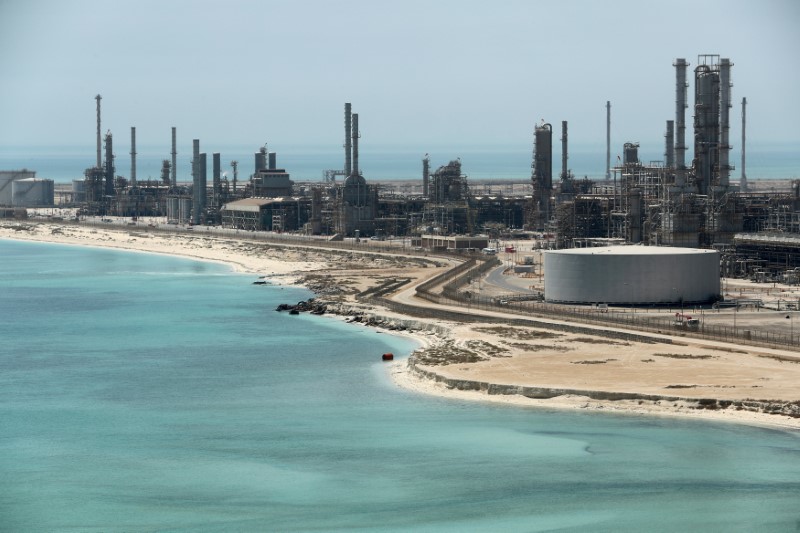By Henning Gloystein
SINGAPORE (Reuters) - Oil prices slipped on Tuesday on record Saudi oil production, although traders were cautious ahead of the G20 gathering that starts in Argentina on Friday and next week's OPEC meeting in Austria.
International Brent crude oil futures (LCOc1) briefly dipped below $60 per barrel before edging back to $60.32 at 0326 GMT, still down 16 cents, or 0.3 percent, from the previous close.
U.S. West Texas Intermediate (WTI) crude futures (CLc1) were at $51.45 per barrel, down 18 cents, or 0.4 percent.
Saudi Arabia raised oil production to an all-time high in November, an industry source said on Monday, pumping 11.1 million to 11.3 million barrels per day (bpd) during the month.
Oil prices have lost almost a third of their value since early October, weighed down by an emerging supply overhang and widespread financial market weakness.
Profit growth at China's industrial firms slumped for a sixth straight month in October as demand cooled further amid mounting uncertainties stemming from the U.S.-China trade war.
"Oil is on a slippery slope," said Norbert Ruecker, head of commodity research at Swiss bank Julius Baer.
"The continued slide follows a surprisingly swift and pronounced change in the market mood from shortage fears to glut concerns ... (and worries) that the world economy is about to slow down significantly," he said.
Looking ahead, traders said they were awaiting the outcome of the Group of 20 (G20) meeting in Buenos Aires and also the result of a meeting of the Organization of the Petroleum Exporting Countries (OPEC).
The leaders of the G20 countries, which make up the world's biggest economies, meet on Nov. 30 and Dec. 1, with the trade war between Washington and Beijing atop the agenda.
OPEC will gather for its annual meeting at its headquarters in Vienna on Dec. 6, and the group will discuss its output policy together with some non-OPEC producers, including Russia.
In favour of low oil prices for consumers, U.S. President Donald Trump has put pressure on his political ally Saudi Arabia, OPEC's de-facto leader, not to cut production.
Despite this, most analysts expect OPEC to start withholding supply again soon.
"Our base case is for OPEC+ members to see through the pressure from President Trump and concentrate efforts on curbing the current oversupply in the market by conforming to a new production cut agreement next month in Vienna," said Japan's MUFG Bank in a research note.
"If OPEC plus Russia cannot send a very strong message to the market, prices are poised to fall further, perhaps to Brent at $50 per barrel and WTI of $40 per barrel or less," Fereidun Fesharaki, chairman of energy consultancy FGE, wrote in a note to clients.

"The message must be decisive, firm, and the front must look fully united, to have any chance of slowly reversing the trend," Fesharaki said.
